How to Plan an African Safari
Planning an African safari from Australia, New Zealand or the USA can feel overwhelming. This guide explains how it works, how long to go for, what it costs, and how Experiential Travel helps you every step of the way.
Not sure if you’re thinking about your safari the right way yet?
I’m confident — just show me how to plan ↓- what’s realistic for your timeframe and travel style
- which regions or experiences fit what you want to see and feel
- common first-safari mistakes that are easy to avoid early
Planning Your African Safari
Planning a safari can feel daunting — but it doesn’t have to. At Experiential Travel, we’ve helped hundreds of Aussies, Kiwis and Americans plan safe, rewarding African safaris, built around their interests, pace, and budget.
How does planning a safari work?
- Tell us what matters most to you – Wildlife? Photography? Walking? Culture? Comfort? We’ll listen first.
- We’ll design a personalised itinerary – Tailored to your timing, budget, and style of travel.
- You review, refine, and approve – No commitment until you’re happy. Then we lock it in and get everything ready.
How much does it cost?
A high-quality safari with good lodging, local guides, and support typically starts from AUD $9,000–$14,000 per person for 10–12 days. We don’t mark up like traditional travel agents — in many cases, our safaris cost less than booking online yourself.
How long should I go for?
We recommend 10 to 14 days to make the most of the journey. Itineraries are flexible and we work around your ideal travel dates.
Is it safe?
Yes — we only work with trusted partners and monitor your journey with Safari Sentinel, our real-time support system. If anything goes off-track, we fix it before you even notice.
Why book through Experiential Travel?
- 125+ safaris experienced firsthand – We don’t guess. We’ve been there.
- ATTA, ATAS & ASTA certified – Trusted in Africa, Australia and internationally.
- Tailor-made journeys, not packages – Designed for you, not off-the-shelf.
- Real people, real support – We’re based in Melbourne and always here to help.
What’s the next step?
Use our simple contact form to tell us what you're dreaming of. We’ll get back to you with ideas and options — no pressure, just thoughtful advice.
African Experiences
Africa has something for everyone. It's so much more than just a safari destination. It has exotic islands and idyllic coastlines to wash the dust of a safari, as well as vibrant cities hosting a melting pot of cultures, cuisines, and people. Regardless of what you want to do and see, we use our years of expertise and network of operators on the ground to create a holiday that will have you wanting to explore even more of this incredible continent.
Where To Go In Africa
The first African country that most of us think of is South Africa. The ties between our country and South Africa influence that top-of-the-head recall. But don't stop your thinking at that point, there's much more to enjoy.
Every country is unique and has exquisite experiences for discerning travellers like yourself to enjoy. That said, think of South Africa as your degustation experience in Africa, where you can sample many (but not all) African cultures, landscapes and wildlife in South Africa. Having discovered what you love about Africa in South Africa, come back to another country for a deeper and richer experience.
Where should I go on safari?
Kenya vs Tanzania – which is better for safari?
Kenya offers ease of access, a wide range of camps, and the iconic Masai Mara. Tanzania’s Serengeti is larger and more varied, but areas like the Mara River crossing zones can be very busy during the migration. Both offer superb wildlife — we’ll help you choose based on the timing, your interests, and how you like to travel.
Is Zimbabwe a good safari destination?
Yes. Zimbabwe offers exceptional wildlife, guiding, and fewer tourists. Hwange and Mana Pools rival better-known reserves in other countries. When well planned, it’s one of the most rewarding places to visit — and we know it intimately.
Can I combine countries in one trip?
Absolutely. Many of our guests visit two or three countries — like Botswana and Zimbabwe, or Kenya and Zanzibar. We design seamless transitions to keep travel easy and let you see more without rushing.
Where are the best safaris for photography?
Botswana’s Okavango Delta, Kenya’s Masai Mara, and Tanzania’s Serengeti are top choices for photography. We recommend camps with off-road permits and knowledgeable guides — and can match your trip to peak wildlife and light conditions.
What’s the most remote safari destination?
Northern Kenya, the Liuwa Plain in Zambia, and the Central Kalahari in Botswana offer rare solitude and deep wilderness. These places often require more time and budget but deliver unforgettable rewards for adventurous travellers.
When To Go To Africa
There's something special happening every month in Africa. Don't believe us? View our Seasonal Guide by clicking on the button below, but before you do decide what you want to see first, as that dictates when the best time to visit would be.
When is the best time to go on safari?
When is the best time to visit Botswana?
Botswana is best from May to October, during the dry season. Wildlife gathers near water sources and the Okavango Delta is in full flood. November to March brings fewer visitors, lush scenery, and lower rates — perfect for birding and dramatic skies.
When is Victoria Falls at its best?
The falls are fullest from February to May after the summer rains. June to August offers clear views with less spray — better for photography. October and November are drier, but excellent if you want to combine your visit with a safari in nearby Hwange.
When is the best time to see the Great Migration?
The migration moves year-round. The river crossings (July–September) are dramatic but attract crowds in both Kenya’s Masai Mara and Tanzania’s northern Serengeti. Calving season (Jan–March in southern Serengeti) is quieter and superb for predator action. We'll help match your timing to the migration’s movement.
What is the "green season" and should I go then?
The green season (typically Nov–Mar) brings rain, lush scenery, and newborn animals. While some areas may be less accessible, this season offers beautiful landscapes, dramatic skies, and excellent photography — with fewer tourists and lower rates.
When is the best time for a photographic safari?
May to October offers dry, dusty light and clear wildlife visibility. The green season offers richer colours, spectacular skies, and fewer vehicles. We’ll tailor your safari around light, animal behaviour, and crowd levels for the best results.
How Much Does It Cost?
Travel options in Africa are as varied as anywhere else (if not more), so here's an idea of some of our tours to give you an idea, although everything can be curated to suit your needs and budget.
What does a safari cost — and what affects the price?
How much does a typical safari cost?
Most of our guests spend between AUD 9,000 and AUD 20,000 per person for a tailored safari of 10–14 days. That includes all accommodation, meals, park fees, activities, transfers, and expert planning — but not international flights. Prices vary depending on season, location, and style of travel.
What’s included in the price?
Our itineraries usually include all safari accommodation, meals, park and conservation fees, transfers, guided activities, and 24/7 Safari Sentinel support. Some also include internal flights. International flights, travel insurance, and personal expenses are not included unless stated.
Is it cheaper to book direct?
No. We never add markup — and many of our properties work only through trusted partners like us. You’ll pay the same or less than booking direct, and gain the benefit of expert planning, support, and hand-picked lodges.
When is safari most affordable?
Green season (Nov–Mar) offers excellent value in Botswana, Zimbabwe, and East Africa. You’ll find fewer visitors, lush landscapes, and lower rates — ideal for photographers or repeat travellers. We can design a journey that makes the most of seasonal savings.
Can you design to fit our budget?
Absolutely. We tailor every safari to match your preferences and budget — without compromising quality. With hundreds of lodges and seasonal variations to work with, we’ll find the best possible experience within your range.
African Climates
Africa straddles the Equator and consequently, you can find almost every climate, from tropical through temperate to alpine. (Did you know that there are more than a dozen ski resorts in Africa?)
What’s the climate like in Africa?
Is it hot all the time?
Not always. Safari regions can have hot days and cool nights — especially in dry season. In winter (June–August), morning game drives can be chilly, especially in Botswana and South Africa. Layering is key: think jacket at dawn, short sleeves by lunch.
Does it rain a lot?
Rainfall depends on location and season. The green season (Nov–Mar) brings afternoon showers in southern Africa, while East Africa’s long rains fall in April and May. Rain often comes in bursts — not days of downpour — and brings dramatic skies and lush landscapes.
What’s the difference between wet and dry season?
Dry season (May–Oct) offers clear skies, low humidity, and easier wildlife viewing near waterholes. Wet season (Nov–Mar) brings greener landscapes, fewer crowds, and great birding — but also some road closures or limited access in remote areas.
Will we be uncomfortable in the heat?
Most camps are well designed for the climate, with shaded areas, fans, and natural ventilation. Some offer air conditioning, but often it’s not needed. We’ll recommend properties that suit your comfort needs and travel season.
What should I pack for the weather?
Light layers are best — neutral colours, a warm jacket for mornings, and a hat for sun protection. We'll send you detailed packing advice once your itinerary is confirmed, including seasonal tips for your destinations.
Want tips from someone who's been there?
How To Book: Package, Small Group, Self-Drive or Tailor-Made?
Tailor-made itineraries
Obviously, the best way to ensure that you get exactly what you want on a trip to Africa is to get us to design it specifically for you. What might not be so obvious is that this approach should not cost you any more than if you booked it "on the internet".
Due to the fact that we add so much value in helping you through the design process, our suppliers allow us a margin on their prices. They know we won't "forget" things like transfers, park fees, charter flights, departure fees etc. The effect is that we design your dream safari and minimise the risks to you for about the same price as the "internet price".
How does a tailor-made safari work?
How do we begin planning a tailor-made safari?
We start by listening. You tell us about your interests, pace, travel experience, and timing — and we build a draft itinerary that reflects your priorities. It’s collaborative, not automated, and usually takes a couple of rounds to get exactly right.
Can I include more than one country?
Yes. Many guests combine countries — for example, Botswana and Zimbabwe, or Kenya and Tanzania. We’ll help you design a route that makes sense both logistically and experientially, without unnecessary backtracking or rushed travel.
How far in advance should I book?
For peak season (June–October), 9–12 months in advance is ideal. Some lodges book out earlier. Green season safaris are more flexible. We can usually hold provisional bookings while you finalise flights or travel dates.
Can I choose the pace and activities?
Absolutely. Whether you prefer early mornings and full-day game drives or relaxed starts and cultural visits, we tailor the experience to your pace. We’ll recommend lodges and guides that match your preferences and energy level.
Is there a minimum budget or length?
Most tailor-made safaris are 10 to 14 days, starting around AUD 9,000 per person. That includes all ground arrangements but excludes international flights. We’ll always design to your priorities — whether that’s exclusivity, value, or access to a specific experience.
Will I have help if something goes wrong?
Yes. You’ll have 24/7 support from our Safari Sentinel service, which monitors travel conditions, flight changes, and logistics in real time. If plans shift, we adjust quickly — often before you notice a problem.
Contact us now for a no-obligation chat.
Packages (AKA Any-time departures)
These itineraries are perfect for experienced travelers who want to travel on their own schedule — and perhaps a little under the radar.
They’re fully integrated, meaning we’ve planned every step from the moment you arrive in Africa to the moment you leave. Airport pickups, expert guides, comfortable accommodations, logistics — all taken care of. You won’t be traveling with a fixed group, though you may share certain activities, such as game drives, with other guests staying at the same camp or lodge.
We’ve either tested these itineraries ourselves or designed them with trusted partners who know the region as well as we do. And while you won’t have a tour leader traveling with you throughout, every planned activity is led by a vetted local guide or private driver who knows the terrain, the wildlife, and the people.
Please Note: We don’t include international flights in these packages because our guests depart from many different cities. Instead, we quote flights personally and separately to ensure the best possible price and routing.
These journeys are best suited to confident travelers — especially those who’ve been to Africa before — who enjoy flexibility without sacrificing structure or support.
How do your any-time departure packages work?
Will I be travelling completely on my own?
Not entirely. While you won’t be part of a group, you’ll still join other guests on game drives and shared activities at many camps. You'll have a private driver or guide for transfers and day tours where appropriate. It's independent travel — with support.
Who meets me when I arrive in Africa?
A professional local representative or private driver will meet you at the airport and escort you to your accommodation. Every handoff — transfers, flights, lodge check-ins — is planned in advance. You're never left guessing what comes next.
Will I have a tour leader or host?
No. These itineraries do not include a dedicated tour leader throughout. However, every planned activity is led by a professional local guide, and you’ll be in the hands of experienced teams at each lodge or camp. Behind the scenes, we’re monitoring your trip through Safari Sentinel.
Are these packages flexible?
Yes. We can usually adjust dates, add or remove destinations, and tailor inclusions — provided availability allows. Many guests use our packages as a starting point and modify them to better suit their travel style.
What happens if there’s a delay or disruption?
We’re watching. Our Safari Sentinel service monitors your flights and travel progress in real time. If there’s a delay or cancellation, we step in immediately — adjusting plans and informing local teams. You’ll never face a problem alone.
Is this a good option for my first time in Africa?
It can be — especially if you’re a confident traveler or have done guided trips before. If you’re looking for a more social or hands-on hosted experience, one of our small group tours may be a better fit. We’re happy to talk it through with you.
Small groups (AKA scheduled departures)
First up, let's dispel a misconception. If you see the word "group" and think of dozens of people tumbling off a coach to follow a furled pink umbrella around a popular tourist attraction before being herded back onto the bus in time to rush to the next "attraction"... (shudder) - no, we're not that.
Our groups are small. Usually about six or twelve, depending on whether we have one or two tour leaders. Our tour leaders are very experienced - they're usually Australians who have been travelling to and/or living in Africa for more than ten years. Sometimes much longer than that. In addition to the tour leaders, we are accompanied by local guides during the day and during every planned activity.
Think of the tour leaders as your "quality control officers." They have been on this itinerary and know what to expect, so they will pick up immediately when something is about to deviate from the plan. They delight in being able to mitigate the variation - before you are aware of it.
Our small groups are perfect for first-time travelers to Africa and for people who want to leave all of the little issues to somebody else. After doing this for more than a dozen years, we can tell you that no itinerary in Africa goes perfectly - but the tour leaders can make it so.
What are your small group tours like?
How many people are in a group?
Usually around 6 to 12 guests. We keep our groups small — just one or two vehicles — so it feels more like travelling with a group of friends than being herded around. You'll have space to ask questions, linger over sightings, and actually enjoy the journey.
Who leads the tour?
Our tours are led by highly experienced tour leaders — usually Australians who’ve travelled to or lived in Africa for more than a decade. In addition, we’re joined by professional local guides for every planned activity. It’s serious experience — without the clipboard.
Will I have to share accommodation?
Not unless you want to. Most of our guests travel as couples or friends and book their own room or tent. Solo travellers can request their own room (single supplement applies) or opt to share with another guest if available and agreeable.
Is there downtime, or is every minute scheduled?
There’s always time to breathe. While we include all the important experiences, we build in rest time too — whether it's an afternoon by the pool or a quiet evening around the fire. This is Africa, not a checklist.
What happens if something goes wrong?
That’s what your tour leader is there for. They know the itinerary inside-out and pick up on potential issues before they become problems. A missed flight, a weather delay — you may never even know it happened.
Is this a good option for my first safari?
Absolutely. If you're new to Africa — or just want someone else to handle all the little details — a hosted small group is ideal. You’ll travel with support, gain insight, and enjoy the shared excitement of people seeing Africa for the first time.
Self-drive adventures
The "road trip" is an essential facet of the cultures of Australia, New Zealand, the United Kingdom and the United States. We all enjoy the freedom of traveling on our own schedule. We can dally at a gallery or cafe as much as we like, without feeling beholden to other travellers. But we also enjoy the certainty of booked accommodation and knowing there will be a warm bed waiting for us at the end of the day's journey. Sometimes it's fun to take the bed with us in the form of a rooftop tent.
Such travel is also very popular in Africa. The very word "safari" is Swahili for journey, and derived from the Arabic word "safara" with a similar meaning. Early settlers in southern Africa strongly admired people who ventured out into the African countryside.
These traditions are very much alive in Southern Africa to this day. South Africans, in particular, are very fond of renting a well-equipped 4x4 and driving into a neighbouring country for their safari holiday. Consequently, the biggest global car rental brands all have many hundreds of such 4x4's in their fleets in the region.
Alternatively, you can rent a regular sedan and drive from property to property, appreciating their accommodations and game drives.
The best countries for self-drive safaris are:
Personal Security In Africa
We take the safety of our clients very seriously indeed. As a guide, we only book countries and experiences that we would be happy to book for our children. We rarely book experiences that we have not sampled ourselves, so you can ask us for first-hand knowledge about everything we propose for you.
That said, we also monitor various intelligence sources and have found the most reliable to be the US Department of State. This organisation is extremely well funded and somewhat conservative in its assessments. So it is up to date and matches our risk-averse posture.
The United States Department of State maintains an interactive map that depicts the security assessment of most countries on earth.
Is it safe to travel in Africa?
Is Africa safe for tourists?
Yes — when well planned. We work only with trusted partners, avoid unstable areas, and monitor all movements through our Safari Sentinel service. Most safari destinations are safer than many big cities at home — but like anywhere, knowledge and preparation make the difference.
What is Safari Sentinel?
Safari Sentinel is our real-time travel monitoring and contingency planning service. It tracks flights, road conditions, and local developments — and allows us to respond proactively if something changes. It’s your invisible layer of support while you travel.
Is Zimbabwe safe for tourists in 2025?
Yes — when your itinerary is managed by experienced operators. We’ve sent many guests safely through Zimbabwe with exceptional results. While headlines may raise concerns, our local partners and real-time tracking ensure you’re in good hands from arrival to departure.
Will I need security escorts or armed guards?
No. Safari areas are typically very safe, and armed escorts are neither necessary nor appropriate. Your safety comes from smart planning, trusted ground handlers, and seamless logistics — not visible force.
What about health and medical safety?
We build itineraries with access to good medical support where needed. We’ll advise you on recommended vaccinations and provide documentation for your doctor. And we strongly recommend comprehensive travel insurance including medical evacuation.
Will someone be there if I need help?
Yes — always. You’ll have access to our team 24/7. If something goes wrong, we’ll already be working on it before you call. That’s the advantage of booking through people who know the region and genuinely have your back.
Vaccinations And Your Health in Africa
Like security, the health and sanitation infrastructure in Africa varies from state of the art to very basic. In all cases, you should ensure that your travel insurance policy covers you for medical evacuation if required. The Center for Disease Control in the United States maintains an excellent resource for travelers.
Some countries require you to be vaccinated against Yellow Fever if you intend to visit countries that have a risk of Yellow Fever transmission. These requirements change from time to time. Please check with the CDC, your doctor and us.
Most countries have specific requirements related to COVID-19. We recommend double vaccination and pre-travel testing as a minimum for all international travel.
Some diseases and disorders are more prevalent in some places in Africa than they are in your home country. For detailed information about specific diseases - including how to protect yourself - you can refer again to the Center for Disease Control:
In addition to these diseases, there are several that are transmitted by bug bites. You should always take primary measures to prevent such bug bites. The CDC has more information about bug bites.
Packing for your Safari
Once we've helped you through the process of deciding where you'll go, when you'll go and what you'll do while you're there, you now need to decide what to take with you.
Because this will almost certainly be different from your regular holidays, you'll pack differently too.
Fortunately, with so much experience packing for trips to Africa, we can help you in this process too.
Featured Destinations
Looking for unique safari experiences? Discover our handpicked destinations offering unparalleled wildlife encounters.
Frequently Asked Questions
Click to reveal frequently asked questions
When is the best time of year to go on safari?
It depends on the destination and what you most want to experience.
Southern Africa (Botswana, South Africa, Zimbabwe): The dry season (May to October) is ideal for wildlife viewing.
East Africa (Kenya, Tanzania): For the Great Migration, aim for July to October.
Green Season (November to March): Offers lush landscapes, exceptional birdlife, fewer tourists, and better rates.
How much does a safari cost?
Safari pricing varies based on country, style, and season:
• Classic safari camps: from US$700–1,200 per person per day
• Luxury safaris: from US$1,500–2,000+ per person per day
• Ultra-luxury or specialist safaris: US$3,000+ per day
• Mobile safaris: offer excellent value with full-service experiences in more rustic settings
Is it better to book in advance?
Yes. For peak seasons or exclusive lodges, book 12–18 months in advance. That said, we can sometimes build outstanding safaris with less notice.
Is a safari safe?
Yes — when booked with a trusted operator and you follow your guide’s instructions. All our guides are professionally trained. We also monitor your trip in real time through our Safari Sentinel service.
We only recommend experiences and lodges we’d be happy for our own adult children to undertake as solo travellers.
What’s it like on a mobile safari?
Mobile safaris offer comfort, immersion, and flexibility. A typical day includes:
• Early wake-up, coffee and sunrise game drive
• Bush breakfast and midday rest
• Afternoon tea and evening game drive with sundowners
• Dinner and conversation around the fire
Spacious tents include real beds, private bucket showers, and en-suite toilets.
Do I have to help with camp chores?
Only on low-cost safaris that mention your "Participation" in these chores. Otherwise, everything is taken care of — unless you’d like to join in!
How do I stay safe in cities and towns?
• Don’t display valuables
• Use a zipped daypack or crossbody bag
• Stick with pre-arranged transfers
• Lock vehicle doors and keep windows up at stops
• Be respectful and avoid confrontational behaviour with officials
Is there mobile reception or Wi-Fi?
Cities and towns have good coverage. Remote safari camps may have no reception and slow or no Wi-Fi.
• Use local SIM or data SIM
• Use WhatsApp for calls and messages
• Turn off international roaming unless prearranged
• Use a VPN when accessing personal accounts on public networks
How do I prepare for medical needs and vaccinations?
• Consult a travel doctor 6 months before departure
• Consider vaccines: Yellow Fever (if required), Hepatitis A/B, Typhoid, Polio, Tetanus, COVID-19
• Malaria prophylaxis may be required (e.g., Malarone or Doxycycline)
• Avoid Lariam and chloroquine
• Travel insurance with medical evacuation is essential
What should I pack for a safari?
• Neutral, breathable clothing (khaki, beige, green)
• Layers for warm days and chilly mornings
• Closed shoes or boots (required for walking safaris)
• Sunscreen, hat, sunglasses, insect repellent
• Camera, binoculars, power bank
• Duffel bag (not hard-shell luggage)
Is there a dress code at safari lodges?
Not at all. Lodges are casual and comfort is key. In cities, smart-casual is suitable for evenings out.
Dinner on a Rovos train is an elegant affair and "formal" attire is expected.
What are the luggage limits?
• Commercial flights: ~20kg checked + 7kg carry-on
• Safari flights: 15kg total in soft-sided bags only
• Hard-shell cases may be refused on charter/safari flights
• Luggage storage can be arranged if needed
Is laundry available on safari?
Yes — typically available at lodges for stays of two nights or more. One-night stops do not offer laundry services.
Do I need a visa?
• South Africa: Visa-free for AU/UK/NZ/USA
• Botswana: Visa-free for most Western travellers
• Kenya: eTA required for most Western travellers
• Namibia: Visa on arrival or eVisa required for most Western travellers
• Tanzania: eVisa required for most Western travellers
• Uganda: Visa required for most Western travellers
• Zambia: Visa not required for most Western travellers
• Zimbabwe: Visa on arrival or eVisa required
Ensure your passport is valid for 6 months beyond your return and has two blank facing pages per country.
How much should I tip?
• Guides: US$10–$20 per person/day
• Lodge staff: US$10–$15 per person/day (via tip box)
• Porters/drivers: US$1–$2 per bag/service
• Restaurants: 10–15%
Carry small USD notes or local currency for tipping.
Can I add other destinations to my safari?
Yes. Many guests combine safaris with Cape Town, Victoria Falls, Zanzibar, wine country, cultural stops, or a beach break. Just ask!
Can I make this a private safari just for me and my friends?
Yes — subject to availability. Private departures are popular for families and groups of friends. Early enquiries are best.
How do I book?
Contact us through our Contact Page or email [email protected].
We’ll guide you through itinerary options, then design an itinerary just for you, usually at a lower total cost than if you "book on the internet.".
Is it better to book direct or through an agent?
Booking direct might seem cheaper, but it rarely is. We have access to the same rates, often with added value — and you’ll benefit from expert planning, tailored advice, and real-time support from our Safari Sentinel service.
Will I see the Big Five?
The Big Five — lion, leopard, elephant, buffalo, rhino — are all possible to see in key areas. Some parks are better for certain species. Let us know what you’re hoping for, and we’ll tailor accordingly.
Is Africa suitable for older travellers?
Yes. We design safaris with pace and comfort in mind. Many of our guests are in their 70s or 80s. We match you with lodges that offer easy access, attentive service, and gentle activities if preferred.
Can I travel solo?
Absolutely. Solo travellers are welcome at all camps and lodges. Some waive the single supplement in low season. We’ll advise on the most welcoming and well-hosted options for independent travellers.
Can children go on safari?
Yes — but it depends on the destination and the child’s age. Some lodges are family-friendly with kids’ programs, while others have age minimums (often 6–12 years). We’ll help you choose the right experience for your family.
Can I do photography on safari?
Yes, and most guests do. Some camps offer specialist photographic vehicles and guides. If photography is important to you, let us know so we can recommend the right camps and best season.
Can I do walking safaris?
Yes. Walking safaris are available in many areas and are led by armed, trained guides. These range from short interpretive walks to multi-day adventures. Minimum age and fitness levels may apply.
Are there vegetarian, vegan or gluten-free options?
Yes. Safari lodges cater to dietary preferences and restrictions with advance notice. We always communicate your needs ahead of time to ensure you’re well looked after.
Can I drink the water?
In safari camps and lodges, drinking water is provided and safe. In some cities or public areas, bottled or filtered water is recommended. We provide clear guidance throughout your trip.
Can I charge my devices?
Yes — but power supply varies. Most lodges have charging stations in tents or main areas. Bring a universal adapter, power bank, and spare batteries for cameras. Some mobile camps rely on solar power.
What if my flight is delayed?
We monitor your itinerary in real time through our Safari Sentinel service. If there’s a disruption, we notify drivers and activate contingency plans to keep your safari on track — without the stress falling on you.
Do I need travel insurance?
Yes — it’s essential. Your policy should include comprehensive medical coverage, evacuation, and cancellation. We can recommend providers familiar with African travel requirements.
When should I take out travel insurance?
The day you pay your deposit. Travel insurance should be in place before any cancellation penalties apply — which is usually from the moment your booking is confirmed. Early cover can protect you if unexpected events force a change of plans, depending on your policy.
How do I pay?
Once you're ready to confirm your booking, we’ll send you an invoice. You contract directly with us and pay us directly — there's no third-party agent involved. Payment is typically made by bank transfer or credit card, and we’ll provide full details at the time of booking.
Will I need cash?
Most lodges are cashless, but small amounts of cash (USD or local currency) are useful for tipping, markets, and minor expenses. ATMs are available in cities. We’ll advise what’s appropriate per country.
How early are the mornings?
Game drives usually start just after dawn, often with coffee and a snack beforehand. Exact times vary with the season and daylight. Afternoon drives begin mid-afternoon and return after sundown.
Will I be cold at night?
Nights and early mornings can be chilly, especially in winter in Southern Africa (June–August). Bring a warm jacket or fleece and long trousers. Many lodges offer hot water bottles and blankets for game drives.
Is it ethical to visit Africa as a tourist?
Yes — when done responsibly, travel is a powerful force for good. Tourism creates livelihoods, supports conservation, and helps protect wild places that might otherwise be lost. At Experiential Travel, we only recommend camps and lodges that are deeply committed to their communities and ecosystems. Ethical, conservation-driven employment provides real alternatives to poaching and unsustainable land use — making your safari part of the solution.
How do I minimise my impact?
We’ll help you travel responsibly: stay in low-impact camps, support local communities, avoid plastics, and follow ethical wildlife practices. Every safari we build is designed with sustainability in mind.
Can I see gorillas or chimpanzees?
Yes — in Uganda or Rwanda. Gorilla permits are limited and should be booked early. These experiences are physically demanding and incredibly rewarding. Let us know if primate trekking is of interest.
Can I combine safari with a beach holiday?
Yes — and many guests do. Popular combinations include Tanzania + Zanzibar, Kenya + Lamu, or safari + Mauritius or the Seychelles. Let us tailor a balance of adventure and relaxation.
Can I go scuba diving or snorkelling?
Yes. The Indian Ocean offers world-class reefs off the coasts of Zanzibar, Mozambique, and Kenya. We can integrate a marine extension before or after your safari.
Can I use a CPAP machine on safari?
Yes, but please let us know in advance. Some camps rely on solar or generator power, so we’ll ensure you're placed where overnight electricity or battery charging is available. A portable battery may be required.
Can I do yoga or wellness activities on safari?
Yes — some lodges offer yoga platforms, massages, and spa treatments. Others provide peaceful spaces perfect for solo practice. Let us know your wellness goals and we’ll suggest the best options.
Can I fly a drone on safari?
No — drones are not allowed in national parks or conservancies without special permits, and most lodges prohibit them due to guest privacy and wildlife disturbance. Photography is welcome — just not by drone.
What’s the food like on safari?
Food is typically excellent — fresh, seasonal, and beautifully presented. Expect three-course dinners, bush breakfasts, and afternoon teas. Most dietary needs are easily accommodated with advance notice.
Is there malaria where I’m going?
Most safari regions carry some malaria risk, though actual incidence is low and depends on the season. Preventive medication is usually recommended. We’ll let you know what's advised based on your itinerary and travel season. There are a few lovely safari areas in South Africa that are Malaria-free.
Do I need to be fit to go on safari?
Not necessarily. Game drives are suitable for all fitness levels. If you’d like walking safaris, gorilla trekking, or active add-ons, we’ll tailor accordingly. Many camps cater beautifully to older guests or those with mobility concerns.
Is it safe to drink alcohol on safari?
Yes — most camps have a well-stocked bar, including house wines and local spirits. Sundowners are a safari tradition. Just be aware that early mornings and wildlife proximity call for moderation. Premium selections may cost extra.
Can I request a specific guide?
In many cases, yes. If you’ve travelled with us before or have heard great things about someone specific, we’ll do our best to arrange it — especially on private departures or mobile safaris.
Can I bring gifts for local communities?
Yes — but it's best done thoughtfully. We recommend supporting vetted community projects through lodges we trust. Let us guide you on what’s genuinely helpful and welcome.
Will I have time to relax?
Yes. We pace your itinerary carefully, with downtime between activities. Many guests enjoy reading, napping, or watching wildlife pass by from the deck of their tent or lodge.
How much time should I allow for a safari?
We recommend 10–14 days for a balanced safari — with time to explore 2–3 regions without feeling rushed. That includes travel time within Africa and optional time in Cape Town, Victoria Falls, or on the coast.
Will I need to get local currency?
In major cities, it can be useful for small purchases or tipping. In safari camps, almost everything is included except tips. We’ll advise what’s needed for each country.


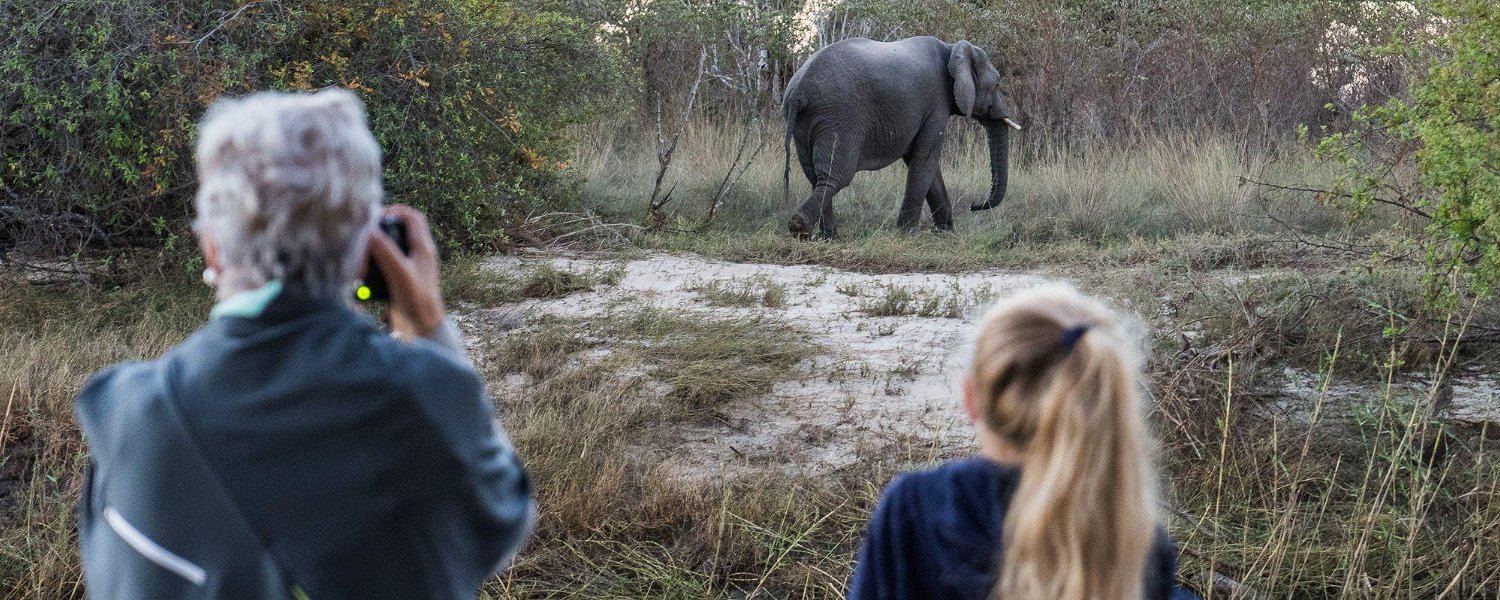
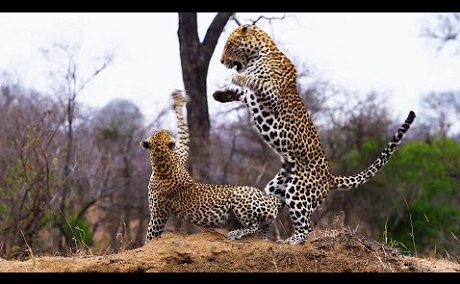
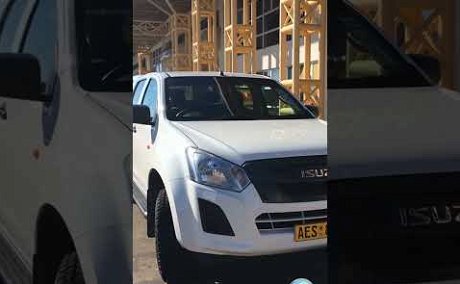
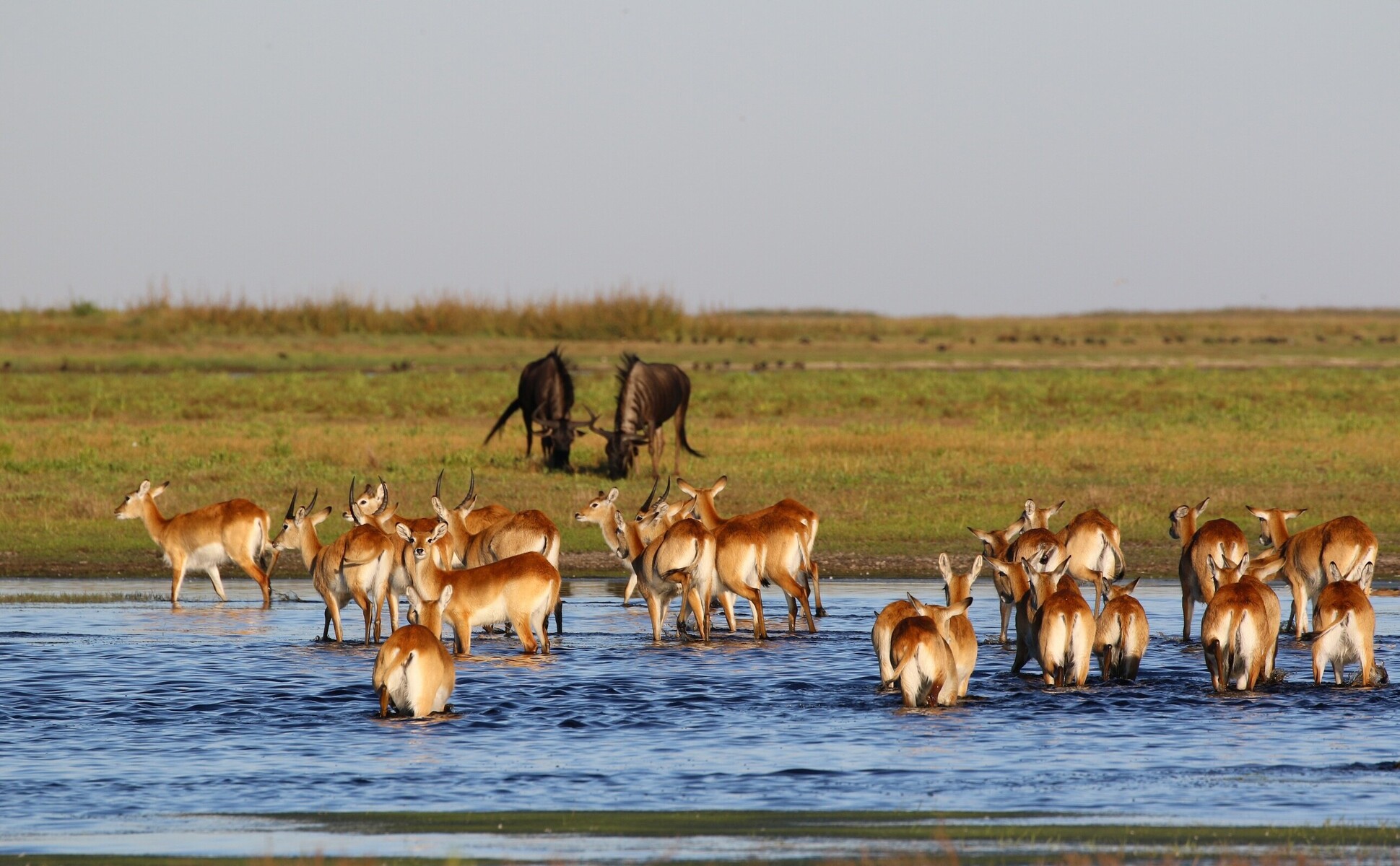
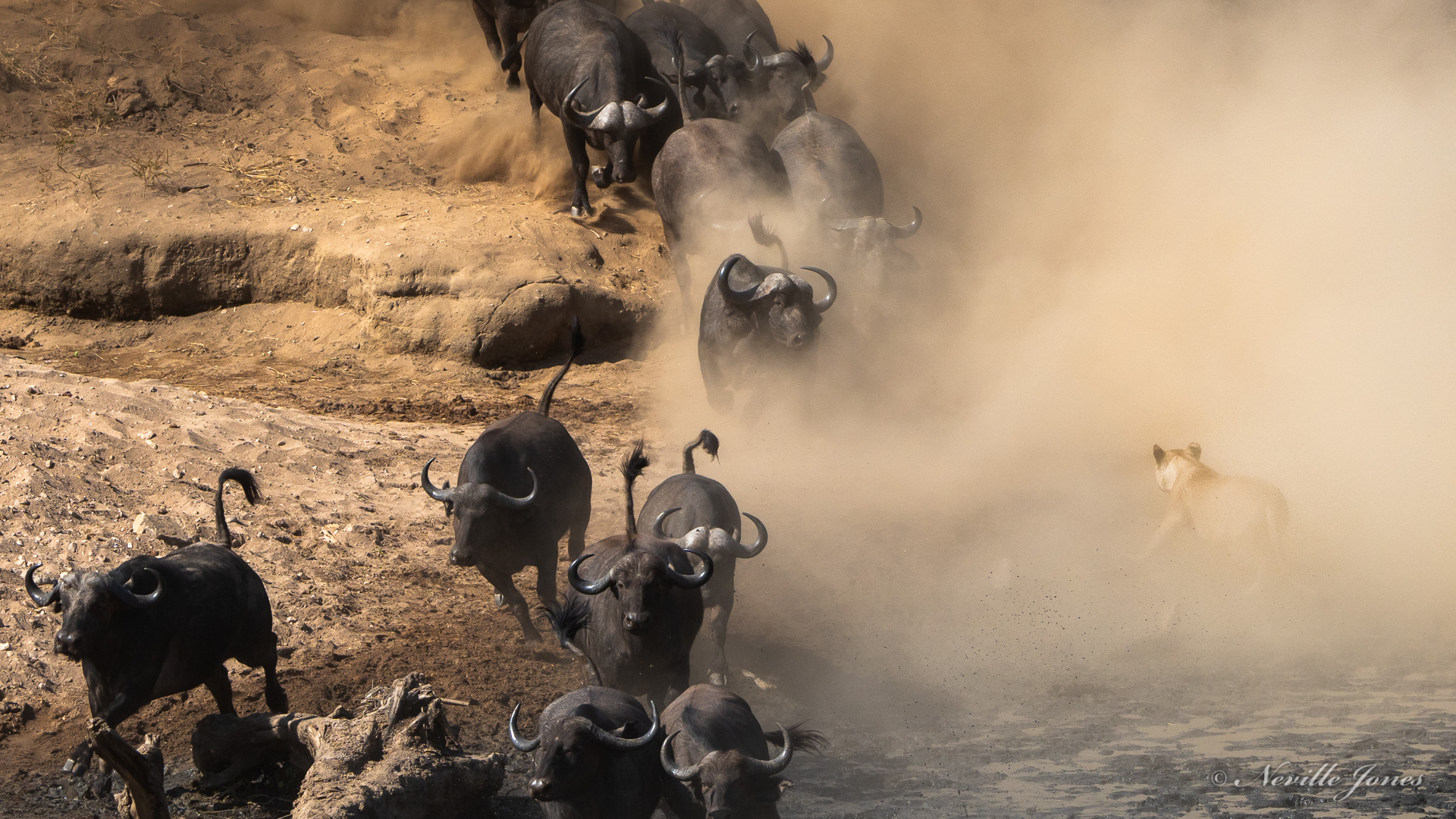
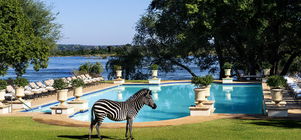
Share This Page